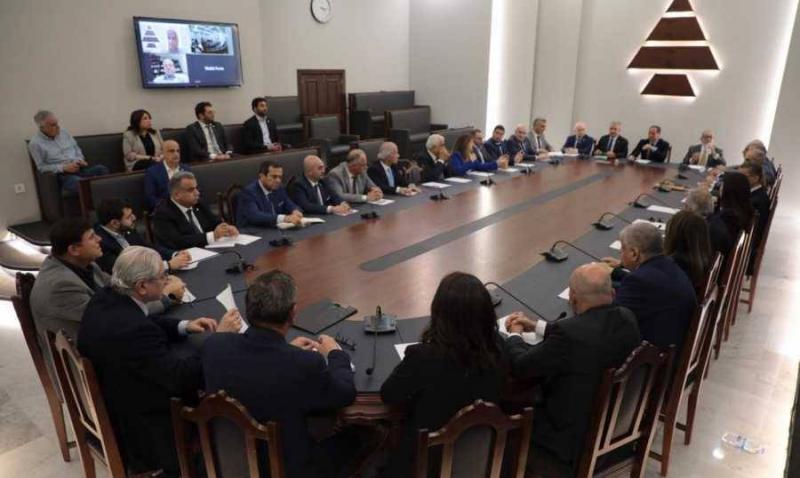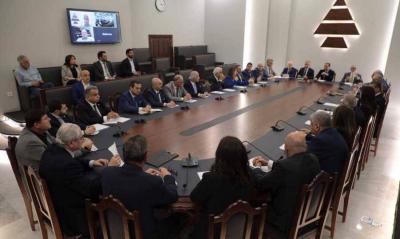The Kataeb political bureau held a meeting chaired by the party's Vice President, Captain George Greg, and after discussions, issued the following statement: "The events in Majdal, Ain Ebl, and Khahala have confirmed that all regions and villages in Lebanon have become an open arena for Hezbollah and a conduit for its weaponry, which it deems sacred, and it does not hesitate to sacrifice the lives of Lebanese to protect it. The incident in Khahala revealed the falsehood of the security that officials boast is under control, a claim that collapsed with the gunfire directed at the youth of Khahala to disperse them, resulting in the death of Fadi Bajani from militia gunfire used and to be used in the sight and sound of a state whose decisions are hostage to a triad that has become inapplicable after the theory of resistance fell with the signing of international treaties with Israel."
The political bureau continued discussing the sequence of events on that dark night in Khahala, where the Secretary-General presented the developments on the ground from the moment the truck slipped. In this context, the Kataeb party considers all the talk being promoted by Hezbollah, its Secretary-General, its MPs, and its media chorus as rejected and unacceptable, representing a new chapter of the deception adopted by this militia. There is no injustice except toward the assaulted people of Khahala; no one desires a civil war except those who threaten it at every juncture, and they are the axis of death, destruction, and resistance.
He added, "The Kataeb party believes that matters have reached a point of no return, and the choice between the state and the mini-state has become a national duty that cannot be evaded if this country is to continue. Confrontation must extend beyond its traditional framework without resorting to armament and being dragged into Hezbollah's logic, which we reject. The Lebanese Kataeb, along with its allies in the opposition and all leaders of free and sovereign opinion, is working to present a unified national stance that translates the requirements of the pivotal phase that Lebanon is passing through, to be revealed gradually."
The bureau addressed a question to the Minister of Interior as an experienced judge: "Why did you preempt judicial investigations in the Ain Ebl crime and assert the absence of any partisan background behind the murder? In simplified terms, why did the minister stop at denial without specifying the circumstances, whether it was a traffic accident or a murder, and in the latter case, who is the perpetrator?"
He concluded: "The Lebanese people do not need a minister to dictate what they read or hear, nor to determine what they watch or disengage from artistic works. It would be better for him to focus on more beneficial matters. The Lebanese reject this dark intellectual oppression, and they know the authenticity of their culture and cling to their freedom, being more than capable of protecting their values and principles."




